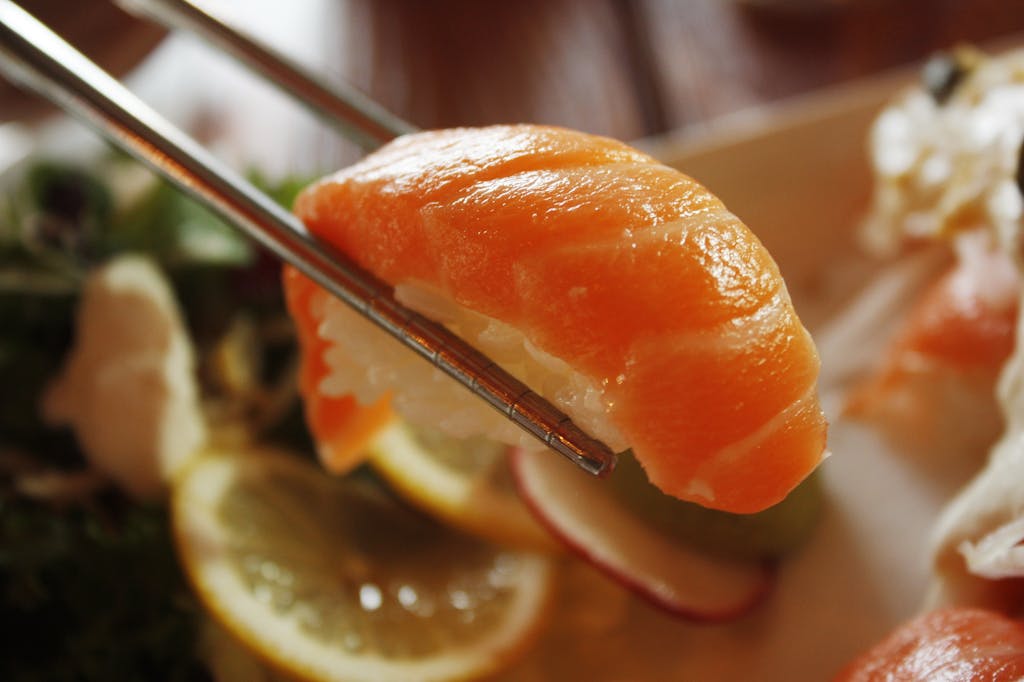FREE SHIPPING OVER $50
Top 10 Anti-Inflammatory Foods to Add to Your Diet Today!
Inflammation is a natural response of the body’s immune system to injury, infection, or harmful stimuli. While acute inflammation is essential for healing, chronic inflammation can lead to various health problems, including heart disease, diabetes, arthritis, and even cancer. One effective way to combat chronic inflammation is by incorporating anti-inflammatory foods into your daily diet. In this article, we’ll explore the top anti-inflammatory foods you should consider adding to your meals today, and why they are so beneficial for your health.
The Role of Inflammation in the Body
Before diving into the specific foods, it’s essential to understand the role of inflammation in the body. Inflammation is part of the immune system’s defense mechanism, helping the body heal from injuries and fight off infections. However, when inflammation becomes chronic, it can damage tissues and organs, leading to a host of health issues.
Chronic inflammation is often triggered by poor lifestyle choices, such as a diet high in processed foods, lack of physical activity, smoking, and excessive alcohol consumption. This type of inflammation can linger for months or even years, causing harm to the body’s cells and contributing to the development of various chronic diseases.
Why Diet Matters
Your diet plays a crucial role in either promoting or reducing inflammation in the body. Certain foods have been shown to have anti-inflammatory properties, helping to protect your body from the harmful effects of chronic inflammation. By incorporating these foods into your diet, you can help reduce inflammation, support overall health, and lower your risk of chronic diseases.
Top Anti-Inflammatory Foods

Let’s take a closer look at some of the most powerful anti-inflammatory foods you can start adding to your diet today.
1. Berries
Berries, including strawberries, blueberries, raspberries, and blackberries, are packed with vitamins, minerals, and fiber, but their most impressive quality is their high content of antioxidants. These antioxidants, particularly anthocyanins, have strong anti-inflammatory effects. Research shows that consuming berries can reduce markers of inflammation in the body.
How to use Berries:
- Add them to your morning oatmeal or yogurt.
- Blend them into smoothies.
- Enjoy them as a healthy snack on their own.
2. Fatty Fish
Fatty fish such as salmon, mackerel, sardines, and tuna are rich in omega-3 fatty acids, which have been widely studied for their anti-inflammatory properties. Omega-3s help reduce inflammation by decreasing the production of inflammatory molecules and increasing the production of anti-inflammatory molecules.
How to use Fatty Fish:
- Grill or bake salmon for dinner.
- Add sardines to a salad.
- Include tuna in a sandwich or salad for a quick lunch.
3. Leafy Greens
Leafy greens like spinach, kale, and Swiss chard are nutrient powerhouses. They’re loaded with vitamins, minerals, and antioxidants that help fight inflammation. These greens are particularly rich in vitamin K, which has been shown to help reduce inflammatory markers in the body.
How to use Leafy Greens:
- Add spinach or kale to your smoothies.
- Make a big salad with a variety of greens.
- Sauté Swiss chard with garlic as a simple side dish.
4. Turmeric
Turmeric is a bright yellow spice that has been used in traditional medicine for centuries, and for good reason. Its active compound, curcumin, is a potent anti-inflammatory agent. Curcumin works by blocking molecules in the body that cause inflammation, making turmeric one of the most powerful natural anti-inflammatory foods available.
How to use Turmeric:
- Add it to soups, stews, and curries.
- Mix it into a smoothie or golden milk latte.
- Sprinkle it on roasted vegetables or eggs.
5. Nuts and Seeds
Nuts and seeds, including almonds, walnuts, chia seeds, and flaxseeds, are excellent sources of healthy fats, fiber, and protein. They also contain omega-3 fatty acids and antioxidants, both of which help reduce inflammation.
How to use Nuts and Seeds:
- Snack on a handful of almonds or walnuts.
- Add chia seeds to your yogurt or oatmeal.
- Sprinkle flaxseeds on your salad or blend them into a smoothie.
6. Olive Oil
Olive oil, especially extra virgin olive oil, is another powerful anti-inflammatory food. It’s rich in monounsaturated fats and contains a compound called oleocanthal, which has similar effects to non-steroidal anti-inflammatory drugs (NSAIDs).
How to use Olive Oil:
- Use olive oil as your primary cooking oil.
- Drizzle it over salads and vegetables.
- Dip bread into olive oil with herbs for a simple appetizer.
7. Tomatoes
Tomatoes are rich in vitamin C, potassium, and lycopene, an antioxidant with powerful anti-inflammatory properties. Cooked tomatoes are especially high in lycopene, making tomato-based sauces, soups, and stews excellent additions to an anti-inflammatory diet.
How to use Tomatoes:
- Make a tomato salad with basil and mozzarella.
- Cook a pot of tomato soup or marinara sauce.
- Add tomatoes to your sandwiches, wraps, and omelets.
8. Garlic
Garlic has been used for its medicinal properties for thousands of years. It contains sulfur compounds, such as allicin, that have been shown to reduce inflammation. Garlic not only enhances the flavor of your food but also provides significant health benefits.
How to Use Garlic:
- Add minced garlic to sauces, soups, and stir-fries.
- Roast garlic and spread it on whole-grain bread.
- Include garlic in your salad dressings and marinades.
9. Ginger
Ginger is another powerful anti-inflammatory food that has been used for centuries to treat various ailments. It contains bioactive compounds like gingerol, which have strong anti-inflammatory and antioxidant effects.
How to use Ginger:
- Add fresh ginger to your smoothies.
- Make ginger tea by steeping fresh ginger in hot water.
- Use ginger in stir-fries, soups, and baked goods.
10. Green Tea
Green tea is one of the healthiest beverages you can drink, largely due to its high content of antioxidants, particularly epigallocatechin gallate (EGCG). EGCG has been shown to reduce inflammation and protect cells from damage.
How to use Green Tea:
- Drink a cup of green tea daily.
- Use green tea as a base for smoothies.
- Try iced green tea with lemon and mint for a refreshing drink.
Tips for an Anti-Inflammatory Diet
In addition to adding these specific foods to your diet, there are some general guidelines you can follow to reduce inflammation through your diet:
- Limit Processed Foods: Processed foods often contain trans fats, refined sugars, and artificial additives, all of which can promote inflammation. Focus on whole, unprocessed foods as much as possible.
- Reduce Sugar Intake: High sugar consumption is linked to increased inflammation. Try to limit sugary snacks, desserts, and sugary beverages like soda.
- Avoid Refined Carbohydrates: Foods made with white flour, such as white bread, pasta, and pastries, can spike blood sugar levels and contribute to inflammation. Choose whole grains instead.
- Stay Hydrated: Drinking plenty of water helps your body eliminate toxins and supports overall health, including reducing inflammation.
- Incorporate More Fiber: Fiber-rich foods, like fruits, vegetables, and whole grains, help to reduce inflammation and improve gut health, which is closely linked to overall inflammation in the body.
Conclusion
Incorporating anti-inflammatory foods into your diet is a simple and effective way to support your health and reduce your risk of chronic diseases. By making these foods a regular part of your meals, you can help keep inflammation in check and improve your overall well-being.
Remember, the key to a successful anti-inflammatory diet is variety. Mix and match these foods to create delicious, nutrient-rich meals that nourish your body and keep inflammation at bay.
Related Articles
- Low Glycemic Foods List Guide PDF
- 23 Nutrition Trends You Need to Know About
- 10 Easy Meals to Help Ease Your Morning Sickness
- Free 21 Day Anti-inflammatory Diet PDF
- Top 10 Health Myths Debunked: The Truth About Fats, Carbs & Exercise
- 10 Foods that Lower Cortisol and Anxiety + Meal Plan
- These 10 Nutritious Magnesium-Rich Foods will Reduce Your Stress Levels
- 10 Foods that Lower Testosterone
- 10 Foods that Boost Testosterone







